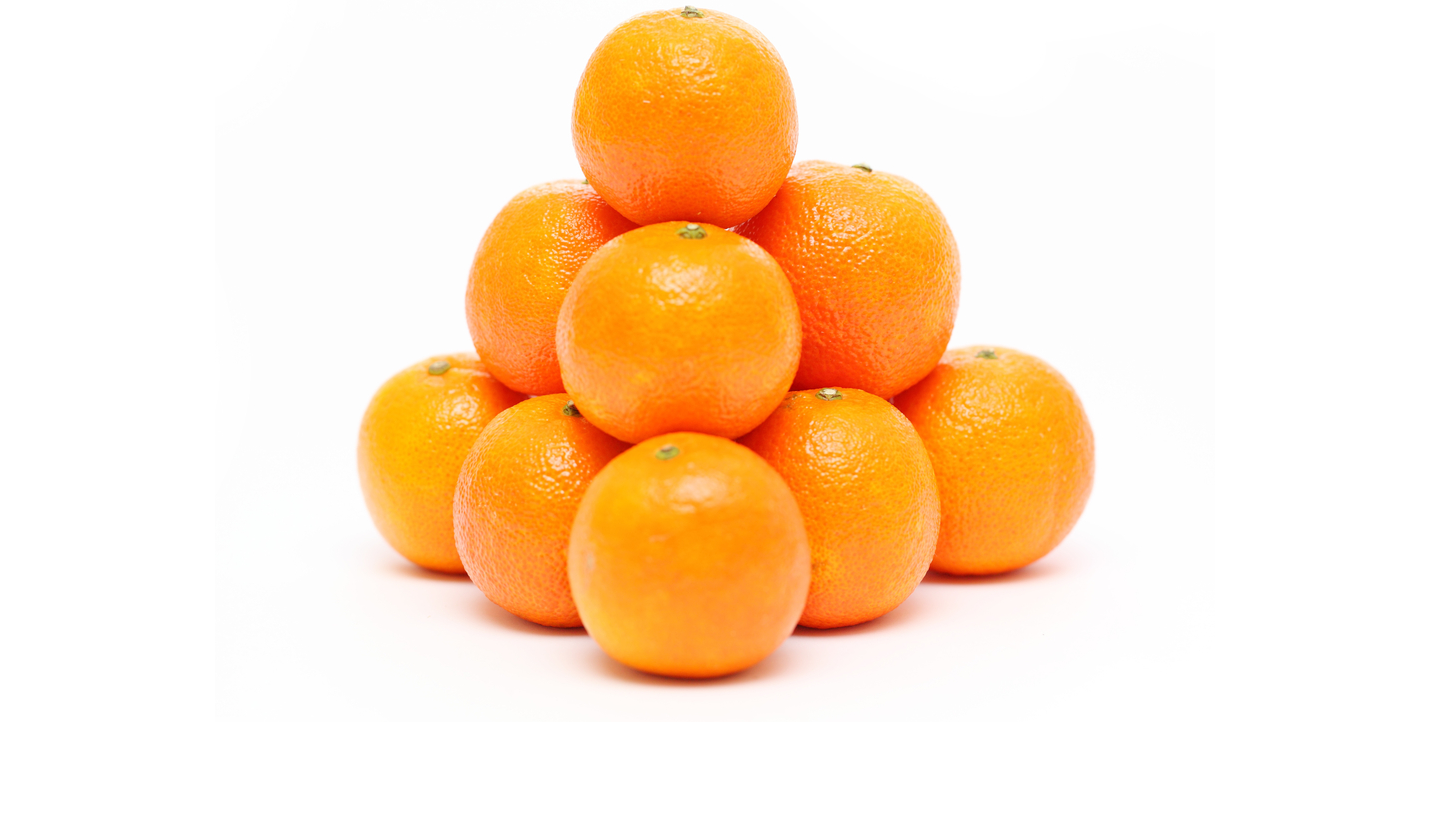Too Many Oranges

The oranges are stacked as a triangular-based pyramid such that there is one orange on the top, 2 more oranges on the second layer, yet 3 more oranges on the third, and so on until there are 200 pyramidal layers of oranges.
If this big lot is distributed into boxes of 7 oranges each, how many oranges will remain undistributed?
This section requires Javascript.
You are seeing this because something didn't load right. We suggest you, (a) try
refreshing the page, (b) enabling javascript if it is disabled on your browser and,
finally, (c)
loading the
non-javascript version of this page
. We're sorry about the hassle.
5 solutions
brilliant observation!!
The number of oranges in k th layer is the triangular number T k . Therefore, the sum of all oranges in n layers is given by:
S n = k = 1 ∑ n T k = k = 1 ∑ n 2 k ( k + 1 ) = 2 1 k = 1 ∑ n ( k 2 + k ) = 2 1 ( 6 n ( n + 1 ) ( 2 n + 1 ) + 2 n ( n + 1 ) ) = 2 1 ( 6 n ( n + 1 ) ( 2 n + 4 ) ) = 6 n ( n + 1 ) ( n + 2 )
⟹ S 2 0 0 ≡ 6 2 0 0 ( 2 0 1 ) ( 2 0 2 ) (mod 7) ≡ 1 0 0 ( 6 7 ) ( 2 0 2 ) (mod 7) ≡ 2 ( 4 ) ( 6 ) (mod 7) ≡ 4 8 (mod 7) ≡ 6 (mod 7)
The number of oranges in each layer are triangular numbers:
T n = 1 + 2 + . . . + n = 2 n ( n + 1 ) = 2 1 ( n 2 + n )
The sum of the oranges in all layers is a tetrahedral number:
P n = T 1 + T 2 + . . . + T n = 2 1 ( ( 1 2 + 2 2 + . . . + n 2 ) + ( 1 + 2 + . . . + n ) ) =
= 2 1 ( 6 n ( n + 1 ) ( 2 n + 1 ) + 2 n ( n + 1 ) ) = 4 n ( n + 1 ) ( 3 ( 2 n + 1 ) + 1 ) =
= 4 n ( n + 1 ) ( 3 ( 2 n + 4 ) ) = 6 n ( n + 1 ) ( n + 2 )
In our case n = 200 :
P 2 0 0 = 6 2 0 0 × 2 0 1 × 2 0 2 = 1 3 5 3 4 0 0
1 3 5 3 4 0 0 ≡ 6 (mod 7)
That's what I did, except for the bit with the triangular numbers. I kept getting 36 till I realized that I should've divided by 6 then 7 instead of dividing by 42.
Let us consider this as summing the series f(n+1)=f(f(n)+n+1) in order up to 200 iterations. We start with 0 before any iteration. Counting this series, we may soon realize discover that the sum is 0 (mod 7) at the 7th iteration. Since f(x)=0, and because of the recursive nature of this function which starts at 0, we can start a new. floor(200/7)=28 so we can fit 28 of the length 7 iterations cycles in the 200 iterations, and since 200-7×28=4, we simply need to calculate the sum for 4 iterations to get the answer, this is 6.
- link text One can easily observe that
1st row has 1*2/2 oranges
2nd row has 2*3/2 oranges
. .. ........ nth row has n(n+1)/2 oranges
So, Total no.of oranges available = 1/2(1 2 +2 3 +3 4 +.........................+ 200 201)
On adding...using general term r(r+1)/2
it is found out to be.. 50 * 67 * 404
to find the remainder on dividing by 7
(50 67 404)mod7=(50 mod7 *67 mod 7 *404 mod7 )mod7=4
Relevant wiki: Hockey Stick Identity
According to Hockey Stick Identity , we can rewrite the number of oranges as:
( 2 2 ) + ( 2 3 ) + ( 2 4 ) + ⋯ + ( 2 2 0 0 ) + ( 2 2 0 1 ) = ( 2 + 1 2 0 1 + 1 ) = ( 3 2 0 2 )
By using Lucas's Theorem , we can find the remainder of modulus 7 by rewriting the binomial coefficients as number base 7
2 0 2 = 4 0 6 7
3 = 3 7
( 3 2 0 2 ) = ( 3 7 4 0 6 7 ) ≡ ( 0 4 ) ( 0 0 ) ( 3 6 ) ≡ ( 3 6 ) ≡ 2 0 ≡ 6 ( m o d 7 )
Therefore, there will be 6 oranges left as a remainder.